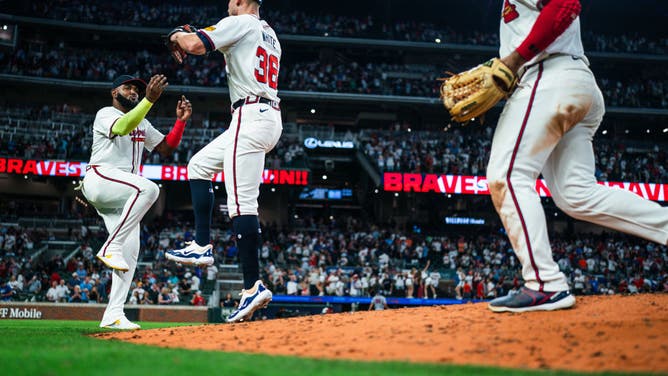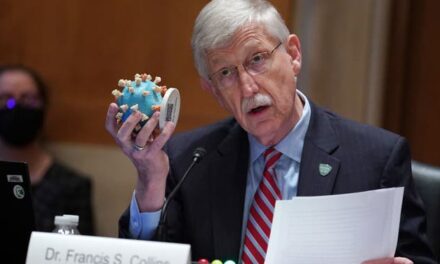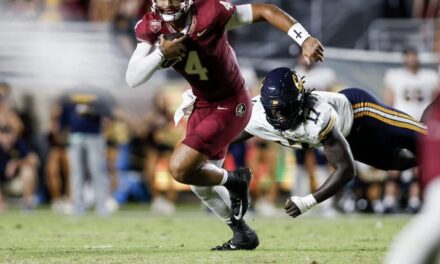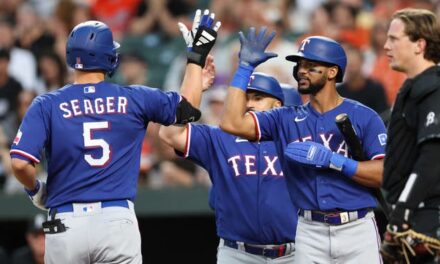We support our Publishers and Content Creators. You can view this story on their website by CLICKING HERE.
This week, the New York Mets and Atlanta Braves were scheduled to play one of the most important series of the season for both teams. The Mets entered Tuesday night with a two-game lead on Atlanta for a wild card spot, needing to win two of three to secure a wild card spot. Even winning one of three would allow New York to control its own destiny. Conversely, though, the Braves could salvage their season with a sweep, allowing them to win out and make the playoffs.
The stakes couldn’t be higher. And Major League Baseball couldn’t have messed up the series more.
Hurricane Helene is making its way into Florida, sending huge amounts of rain into the Atlanta area. This isn’t a surprise; forecasters had, for several days, expected the Atlanta area to see near-constant weather through Thursday and into Friday.
Knowing this, MLB could have ensured that one of the most important series of the year was conducted in a three-day period. They could have shifted the games to different days, or a different location. They did not. Instead, the two teams played the first game of the series Tuesday, a 5-1 Braves win. And now, with weather making the games unplayable Wednesday and Thursday, the remaining two games have been moved…to Monday. Maybe.

ATLANTA, GA – SEPTEMBER 24: Marcell Ozuna #20 and Eli White #36 of the Atlanta Braves celebrate after defeating the New York Mets at Truist Park on September 24, 2024 in Atlanta, Georgia. (Photo by Kevin D. Liles/Atlanta Braves/Getty Images)
Rob Manfred Creates A Mess With Braves, Mets Series Logistics
The way this series was handled almost certainly puts the Mets at a severe disadvantage, logistics wise.
New York has to fly to Milwaukee to play the Brewers in a three-game series from Friday-Sunday. Assuming that there are playoff implications for even one of the two teams, a near certainty given how close the wild card race is, the Mets will have to fly back to Atlanta after Sunday’s game. Even if there are no playoff implications, MLB Commissioner Rob Manfred could still decide that the games should be played to fulfill the 162-game season.
Or if the games would only decide seeding; essentially if the Diamondbacks are eliminated and the Mets and Braves series would determine which team is the fifth seed and which is the sixth, Manfred could decide if the games should be played or not. It’s also up to the commissioner whether, if the playoff implications are decided by the end of Game 1 of the doubleheader, Game 2 should be played or not.
So, hypothetically, if the Mets wrap up the wild card spot and seeding is determined by the end of Game 1, Manfred could make them play 18 innings Monday, before they have to fly out to a road playoff series in either Milwaukee, Philadelphia, San Diego or Los Angeles. Or even flying back home to host a playoff game at Citi Field the next day.
It’s a similar scenario for the Braves.
Simply, it puts one or both teams at a severe disadvantage heading into the playoffs. It puts too much power in the hands of Rob Manfred, and it creates all sorts of travel and logistic uncertainties that didn’t need to exist.
MLB knew that the storm was coming; it knew this was a very real possibility. Apparently, according to Joel Sherman from The New York Post, the Braves didn’t want to move the games, but MLB could have overruled them. The league should have.
These games are too important, the playoff implications too big to leave it up to chance. That’s what MLB did. And now it could force say, the Mets, to fly from Atlanta to Milwaukee to Atlanta to say, San Diego, in the space of four days. All while playing as many as 27 innings in two days before starting a three-game postseason series where pitching is of the utmost importance. It could not have been handled more poorly. Welcome to Major League Baseball.

 Conservative
Conservative  Search
Search Trending
Trending Current News
Current News 





